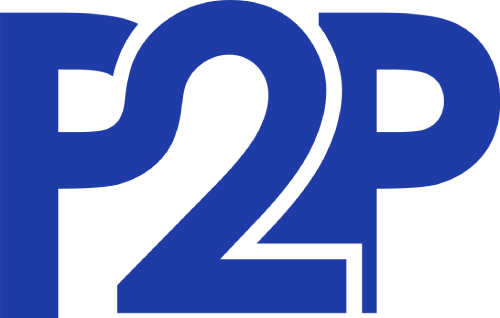This makes Bitbucket the go-to choice if the organization relies on other Atlassian products. You have to consider multiple factors when selecting a version control platform. The primary factor is the requirements of the development team, which trumps all the other factors. In this post, we will discuss how to go about selecting a git-based version control platform and the current leading version control platforms. You can set up Azure DevOps pipelines to build and deploy code from a GitLab repository This setup is useful if you want to use Azure DevOps for CI/CD while keeping GitLab as your primary code management platform. Easier to integrate into cloud-agnostic setups or open-source-heavy environments.
GitHub also provides a number of pre-built and customizable CI/CD and automated workflows to manage, provision, and orchestrate cloud computing resources with GitHub Actions. Azure Boards provides extensive project management capabilities, including customizable dashboards, advanced reporting, and Kanban boards. GitLab also has project management tools, but Azure Boards is considered more feature-rich in this area. In conclusion, both Azure DevSecOps and GitLab offer robust DevSecOps capabilities, with each excelling in different areas.
- With that being said, GitHub does offer a tool called the GitHub Importer to bring in data.
- GitHub offers integrations with AWS, Microsoft Azure, Google Cloud, and other leading cloud providers through the GitHub Marketplace that make it simple to manage, build, and deploy cloud-native applications.
- With GitLab, you can use specific keywords to close one or more issues as soon as a merge request is merged.
- In short, they are CI/CD tools for automating build, test and delivery or deployment processes.
Hosted Service
It will set the CI/CD configuration, so each commit in Azure Repos will trigger a CI/CD pipeline in GitLab which will build, test, and deploy your app. How to keep your code in an Azure DevOps repository and run CI/CD with GitLab pipelines. “GitLab CEO weighing options for going public after employee share sale valued company at $6 billion”.
- GitHub is a fully online platform without any option to run a self-hosted coming under the enterprise tier.
- Core capabilities based on embedded open source projects and integrations with other open source solutions.
- Azure DevOps, designed to foster collaboration and streamline development processes, facilitates the rapid creation and improvement of products using a set of integrated tools and services.
- GitHub Enterprise Importer is our tried and tested migration tool, used by thousands of GitHub customers to migrate more than 690,000 repositories to GitHub Enterprise Cloud.
- Over 17,000 GitHub Actions are available in the GitHub Marketplace to automate your development workflow.
GitLab, while powerful and feature-rich, can have a steeper learning curve due to its all-in-one platform approach, which may require more time to master and configure effectively. GitLab is a powerful DevOps platform, but it's worth considering whether there might be better software for your specific needs. Some notable alternatives to GitLab in the DevOps space include Azure DevOps, Jenkins, Bitbucket, and GitHub. If you plan to switch between these platforms or integrate them, careful translation of syntax will be required. Tools like scripts or templates can help standardize and migrate pipelines between the two systems effectively. More flexible for distributed teams relying on microservices and multi-cloud architectures.
From McKesson to Meta and Spotify to SAP, many of the world's biggest and most innovative companies are built on GitHub—the leading developer platform compared to alternative solutions. Jenkins has a vast ecosystem of plugins, which can be both a strength and a challenge. Managing numerous plugins can lead to compatibility issues and technical debt. Azure DevOps, while also extensible, offers a more integrated experience with less dependency on external plugins. Azure DevOps is a fully managed service, meaning Microsoft takes care of the maintenance, scaling, and infrastructure.
Build on the most loved developer platform
Når man sammenligner GitLab og Height, er det klart, at hvert værktøj tilbyder forskellige fordele baseret på brugerens specifikke behov og projektkrav. GitLab provides a comprehensive DevSecOps platform ideal for development, security, and operations teams looking for an end-to-end solution to manage their software lifecycles efficiently. Its extensive features cater to serious development workflows with enhanced security and CI/CD capabilities. A plus to using GitLab is that it was, initially, a source code management tool / Git repository. As such, converting to their CI/CD platform would have advantages when it comes to easy integration.
GitHub vs. Bitbucket for Devops
I had to perform a lot of pipeline runs and tests to ensure that everything was in good working order. If the pipeline run ended with error or warning, I had to perform checks of the pipeline raw output, review artifacts produced, and check builds compiling results; test and deploy reports needed to be carried out too. All of that was done by hand, as at this point that was the only reliable way to debug the log of the new pipelines and make them comparable to the Azure DevOps ones. If your organization is unable to afford a particular platform, that platform will be out of the selection process, no matter its features.
The Bronze plan (currently $4 per user monthly) is designed for personal projects and small teams. At DeployPlace we use self-hosted GitLab, we have chosen GitLab as most of us are familiar with it. Similar to GitHub, GitLab is a repository manager which lets teams collaborate on code. Written in Ruby and Go, GitLab offers some similar features for issue tracking and project management as GitHub.
The cloud-based Azure DevOps service offers the complete platform excluding test plans completely free of charge for up to five users. Microsoft purchased GitHub in 2018, and now it is under the Microsoft services umbrella with the full backing of Microsoft. With Microsoft’s renewed focus and investments on open source platforms, users can confidently use GitHub for any open source project. This has made the previously paid features like private repositories into free services.
GitLab’s strength lies in its comprehensive DevSecOps platform, AI-driven features, and robust security tools, making it an excellent choice for complete end-to-end software development and security integration. It is particularly beneficial for teams focused on automation and open-source projects. For example, when an event happens in the Slack integration, update a repo work item. Enables pipelines/workflows to be started based on when any defined event is executed in the code repository.
There is an option of monthly updates of new features and improvements in GitLab. GitLab CI and Azure DevOps are CI/CD solutions from different vendors, and offer different capabilities regarding syntax, internal tools (code repository, testing tools) and external integrations. Other well-established CI/CD tools in the market are GitHub, Jenkins, Bitbucket, and other solutions in the AWS Marketplace. Azure DevOps and GitLab are both robust DevOps platforms, but they serve different organizational needs. Azure DevOps offers a modular suite of tools that integrate seamlessly with the Microsoft ecosystem, making it particularly appealing for enterprises already using Azure, Visual Studio, or other Microsoft services. Its scalability and reliability are strong points for large-scale operations.
This is a distributed system, unlike other VCS that store the full version history of the code in one place. So, every copy of the code functions as a unique repository that contains the complete history of all changes. As a result, developers can easily monitor BitBucket activity in Jira, measure their productivity, and connect organization boards to collaborative repositories.
When it comes to testing tools, Azure DevOps stands out for its extensive range of testing capabilities, making it a robust choice for teams needing both depth and versatility in their testing processes. Azure DevOps supports a full spectrum of testing options, including manual and automated testing, as well as advanced test planning and test case management through Azure Test Plans. This allows teams to manage test suites, create detailed reports, and integrate testing directly into their CI/CD pipelines. GitLab and Azure DevOps are both powerful DevOps platforms, but they https://traderoom.info/github-gitlab-bitbucket-azure-devops/ cater to slightly different needs. GitLab offers an all-in-one, integrated solution that covers the entire software development lifecycle, making it ideal for teams seeking a seamless, unified experience. Its open-source nature and strong CI/CD capabilities appeal to those who value flexibility and customization.

